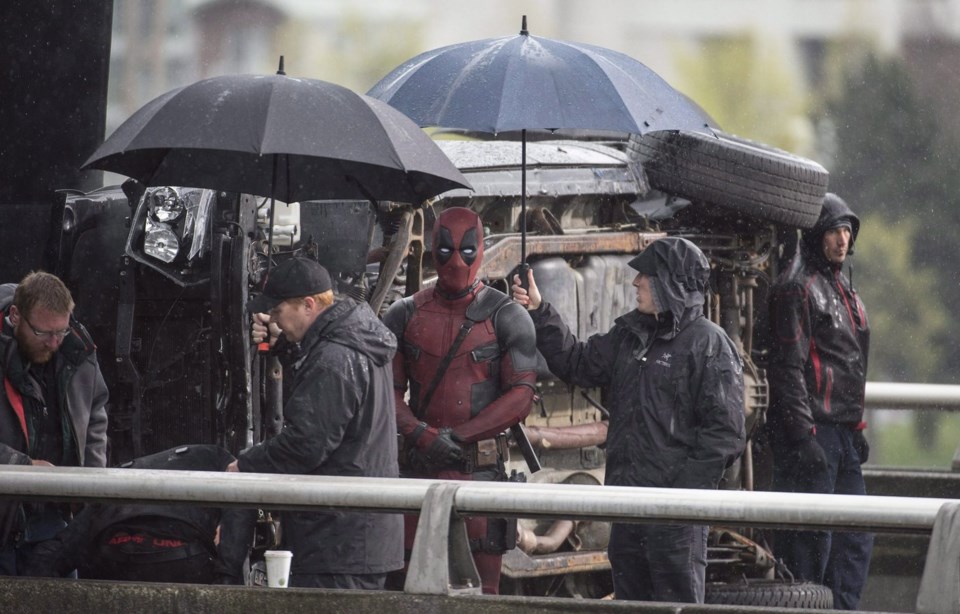VICTORIA — Gemma Martini, president of British Columbia's Martini Film Studios, says she's been getting messages of support from American partners after United States President Donald Trump's threat to put a 100 per cent tariff on foreign films.
She said in an interview that she agreed with B.C. Premier David Eby, who said Monday that the province's film industry shouldn't panic about the threat.
But she warned that such tariffs could be "absolutely devastating."
Martini said that although it isn't clear how such a tariff would be implemented, the uncertainty alone poses a risk.
"Any kind of instability creates a problem for our industry," said Martini, whose company provides studio and stage spaces in Langley, B.C., as well as outdoor sets built to resemble a New York brownstone neighbourhood and other locations, where Hallmark films and other productions have been made.
"We've experienced so much instability over the last three or four years, actually right back as far as COVID. So instability is not great for our industry."
In a social media post Sunday, Trump said he was pursuing a "100 per cent tariff" on all films produced outside of the United States, claiming the American movie industry is dying a "very fast death" due to incentives other countries offer to lure filmmakers.
Martini said she'd been hearing from American partners.
"I will say that all the messages that we are getting today from our American partners and from the productions here on the ground, it's business as usual," she said.
Martini said all sectors of the film industry had been talking with each other about the proposal.
"We are working together," she said. "We will get through this. We're very adept at handling adversity."
Eby said his government would continue to stand with the film industry although he didn't mention specific measures of support.
The premier said Trump's proposal could leave Americans with two versions of Netflix, one showing a limited number of American-only productions and a more costly version that shows viewers everything from around the world.
B.C.'s Minister of Tourism, Arts, Culture and Sport Spencer Chandra Herbert agreed. "Would they (American viewers) have a special channel? 'Here is your tariff channel and here is your non-tariff channel?' Or can Americans only watch American TV?"
He said the threat alone is "unsettling, given we want to grow the industry, not see it recede."
Chandra Herbert said it was "really difficult to peel apart a film," adding that the film industry was "hugely integrated" and spread around the world.
"You shoot part of it in B.C., part of it in Singapore, part of it in the United States," he said. "You do the sound-editing in British Columbia, you do the film editing in the United States. The script writer lives in London."
B.C. has emerged as a top destination for film and TV production, but the industry also faces growing competition from California and other jurisdictions that want to lure production through tax incentives.
Martini said the proposed tariffs would hurt everybody, and would not have the effect of getting productions back to the United States.
The province raised its production services tax credit by eight per cent last year to 36 per cent, if principal photography started by Jan. 1, 2025, while the film incentive tax that supports Canadian-content in production went up by one per cent to 36 per cent.
The added tax credits would bring the provincial contribution to about $1.2 billion annually, for an industry that employs about 26,000 people in the province.
Martini said the tax credit changes helped the provincial film industry get "back at the table" and become globally competitive. She added that the industry is currently not at the stage where it needed more.
"We are grateful for what we have been given," she said, adding that industry welcomes the recognition of the sector's economic importance.
"That's an excellent foundation that we now can build on," she said. We have the infrastructure, we have the people. We just need production to come back and having that support of everybody around us."
Chandra Herbert said that when it comes to supporting the industry, B.C. is already tax competitive.
He said the provincial film industry is looking to diversify by attracting productions from all over the world, but also Canadian productions.
Workers in the provincial film industry "don't want the drama" created by Trump's threats.
"They want this to be put aside and they hope that his musings on Sunday are forgotten by Wednesday, but we shall see."
Conservative Party of B.C. Leader John Rustad also condemned the proposal.
"When I saw that, I thought, what an arrogant SOB," he said of Trump.
This report by The Canadian Press was first published May 5, 2025.
Wolfgang Depner, The Canadian Press



